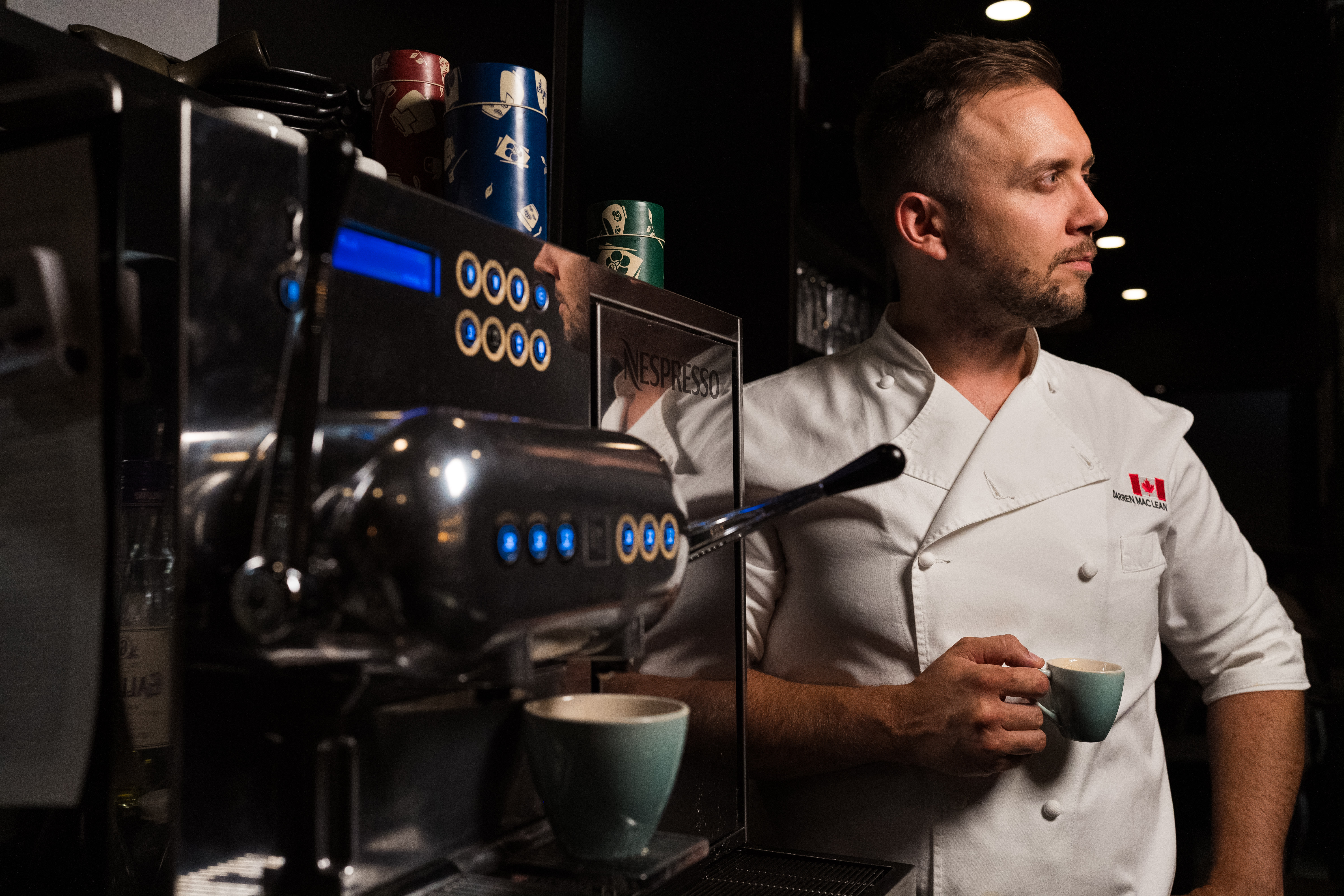Sustainability is often examined through the lens of environmentalism; how can we, as a society, work to sustain our delicate ecosystems, and by extension, the planet and everyone on it. It’s heady stuff to be sure, and an issue that can be overwhelming to individuals. But every action taken by every person has an impact, and collectively, we can take small steps that over time, amount to massive changes.
Rather than look at the issue on a global scale, a first step is to look closer to home, or, in my case, my work.
Forest to Table
After having worked in kitchens around the globe for many years and managing my own restaurants Shokunin, Nupo and Eight in Calgary, I strongly believe that restaurateurs, and chefs in particular, have a responsibility to source food sustainably, if for no other reason than food is how we develop our palates. A great chef is like a great artist, but a painter can’t paint without paint, just as chefs can’t develop their palate without access to fine ingredients.
Continued overfishing, for example, could lead to loss of tuna, scallops, and other delicacies from the sea that are staples of great restaurants. Without sustainable food sourcing, we risk losing the materials that contribute to our artistry.
Many chefs embrace the farm-to-table concept, but the same principle can be applied to wild produce as well, or what I like to call forest-to-table. I go out foraging at least every two weeks, picking a wealth of incredible wild mushrooms and berries that I use to create delicious, unforgettable dishes. On a recent forage, I came back with 17 varieties of mushrooms and five different berries, all of which were incorporated into specials that week. It is important to only forage a little bit from each place to ensure the population and ingredients are there year after year.
Foraging not only connects us to nature and the environment, but the flavours from wild food really taste like nothing else. This sustainable approach is good for the planet, and even better for the palate.
No waste
Let’s be real: Less food waste is good for the planet, but even if you don’t care about global warming (which you should), it’s also good for the bottom line. For restaurants, wasting food is akin to throwing money in the garbage. It’s just good business sense to strive for every morsel of food to get consumed.
Firstly, it’s important to manage your inventory and not order more than what you need. Once the kitchen is stocked, it’s imperative to label and store food properly. The industry norm is roughly three per cent waste, but in my restaurants, we strive for less than one per cent, and we keep food waste sheets to track what gets thrown away. This helps hold the teams accountable and further helps planning going forward.
Perfection is impossible; if a customer doesn’t like their dish and sends it back, that’s out of our control. But a little planning and care can help bring food waste down to as close to zero as possible. Recently, we had a surplus of chicken breasts, so I cooked a special dinner for my team to enjoy. Or, if I have an ingredient surplus, I’ll create a special with it and promote it to customers. It’s always preferable to make use of food than to throw it away.

Leveraging Technology
I’m a chef. I consider myself an artist. I love to create, but it shouldn’t come as a surprise that I do not love paperwork.
Like most chefs, my passion is in the kitchen, not on the computer. I opened my first restaurant – Shokunin - to create, but a huge part of running a restaurant is in the operations. Fortunately, technology has picked up a lot of the slack and continues to get better and more widely available every day. In all my restaurants, I use Square for Restaurants to manage my operations as it is extremely easy to use and takes care of everything from inventory management – helping me reduce food waste – to scheduling.
With technology, I can manage the business from my phone from anywhere, even if I’m out foraging in the middle of the forest. It gives me peace of mind and allows me to focus on my passions rather than paperwork. Ultimately, it gives me the gift of time – time that I can spend in my kitchen. In a nutshell, the right tools and technology help me sustain my business and my joy for cooking.
Learn from others
This year marks the second annual Cultural Chef Exchange in partnership with Square, Food Tourism Strategies and other partners. Every month between May and October, a chef from a different part of the world will come to Calgary to forage, collaborate with me and meet with up-and-coming chefs and other industry professionals.
In addition to creating incredible dishes together and diving into one another’s cultures and flavours, we’re also able to share techniques for making the industry more sustainable.
Sustainability needs to be a global effort, and as I stated earlier, it needs to start at a community level. When opportunities emerge to amplify the message of sustainability beyond our borders, we have a responsibility to take it and not waste it – much like our planet’s incredible resources.
Chef Darren MacLean is one of Canada’s most acclaimed chefs, restaurateurs, and environmental advocates. He was Canada’s sole contender and a finalist on Netflix’s global cooking competition ‘The Final Table.’ MacLean is passionate about sustainability and the food building community. While he regularly participates in events as an educator, speaker and culinary judge in Canada and abroad, he is happiest in his kitchens.
